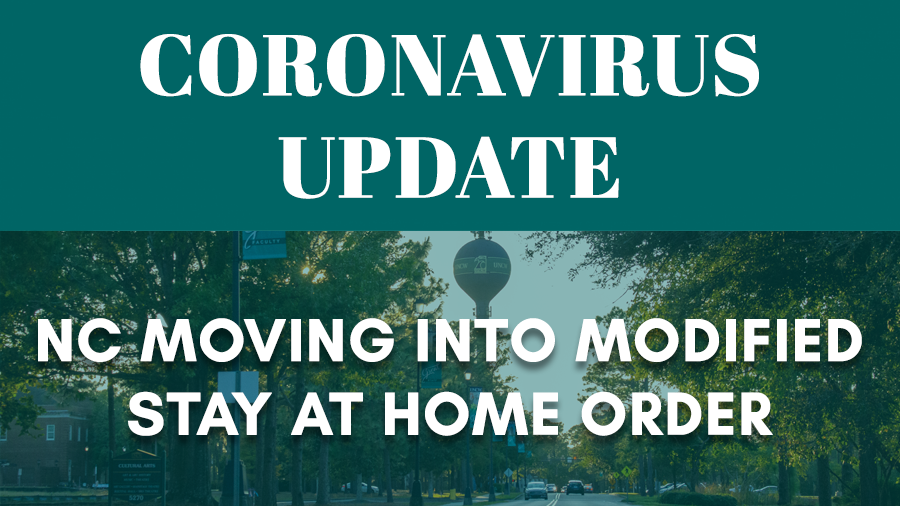NC moves into a modified stay at home order
Starting Dec. 11 at 5 p.m. NC will move into a modified stay at home order.
At a press conference on Dec. 8, North Carolina’s Governor Roy Cooper announced that starting Dec. 11 at 5 p.m. the state will move into a modified stay-at-home order. This order will remain in effect until Jan. 8 at 5 p.m. and requires people to stay at home between the hours of 10 p.m. and 5 a.m.
“It means just what it says: people are to stay at home between those hours. Businesses, including restaurants, bars, entertainment venues, personal care businesses, most retail stores and more, will be required to close by 10 p.m,” Cooper said. “In addition, all onsite alcohol consumption sales must end by 9 p.m.”
Events and outdoor gatherings must end by 10 p.m. and people must return to the home or place they are staying for the night. In addition, the gathering limits from the previous executive order will remain in effect until Jan. 8.
However, travel due to work, obtaining food, gas or social services or taking care of a family member are all exempted from this order.
“Retail businesses that sell groceries, medication, health care supplies, and fuel may remain open between 10:00 p.m. and 5:00 a.m. Service at restaurants, breweries, distilleries and wineries may continue for take-out and delivery after 10:00 p.m,” per the Frequently Asked Questions document.
This order comes as the state has broken single-day records several times already and a majority of counties, more than 80%, in North Carolina are falling in the red and orange tiers regarding community spread. According to Dr. Mandy Cohen, North Carolina Department of Health and Human Services Secretary, the number of red counties has more than doubled since Nov 23.
“Your actions can keep people from getting sick, save lives and make sure our hospitals can care for people whether it’s for a heart attack or a car accident or COVID-19. Protect yourself, your loved ones, and your community now,” said Dr. Cohen.
To read more about the order you can visit the Frequently Asked Questions document.
“We’ll do more if our trends don’t improve,” Cooper said. “That could mean additional actions involving indoor restaurant dining, entertainment facilities or retail capacity. None of us want that.”












